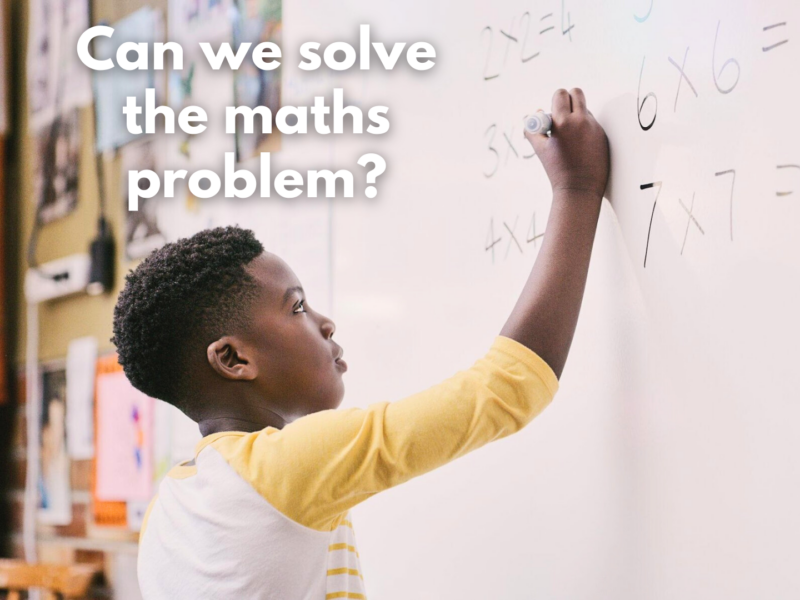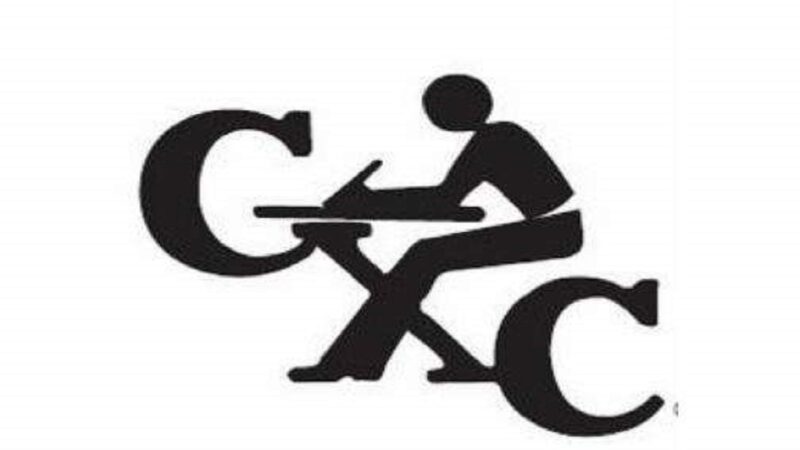
By Kieron Murdoch | Opinion Contributor
We are taking a break from our recent focus on crime and violence to comment on another important issue which has an even greater impact on the pace of development in our small twin island country: our truly appalling and seemingly unimproved national performance in mathematics in schools.
This is certainly not a new trend and it is certainly not unique to Antigua and Barbuda in a Caribbean context. But perhaps we underestimate the impact it has on our development potential when we produce successive generations of to-be entrepreneurs, businesspeople and professionals, who lack a board and necessary competency in certain areas of mathematics.
Maths is foundational. A variety of professional disciplines build upon the maths we learn in school to aid in measurement, calculation, statistics, design, estimation, verification, analysis, and so on. In business, at different levels, maths is obviously essential, whether at the very basic level of a small trader, or at the complex level of a Chief Accountant making financial projections based on income trends, labour cost expectations, inflation, price fluctuations, and changing tax demands.
We speak endlessly about the new age which has dawned and the opportunities available to our young people in science, technology, computing, and information technology.
How are we meant to produce larger and larger cadres of world class professionals in these fields when we have either very bad and holding, or very bad and declining performance in maths?
We speak about the need to improve financial literacy among youth, and to inform and educate them about the real world implications of income, expenses, debts, assets, risk, enterprise, emergencies, the cost of study, and home ownership. What foundation can that knowledge be built upon if so many are daunted when they encounter mathematical challenges?
The other very troubling thing is that the crisis does not appear to be a crisis in enough of our minds. As a society, we seem generally at peace with the fact: we are simply bad at maths. People casually say, “You won’t need it.” This is the mentality.
Apparently, maths is something extraneous. Yet in spite of that view, not gaining a solid foundation in the subject is why many go on to a field they are interested in, and are unable to progress without great difficulty. Or, it may be why many avoid certain fields altogether: “You needed to pass maths to do that”.
So what is the national plan to progressively improve performance and competency in mathematics? Has such a document been published? Was it the product of rigorous exploration, research and design? Were parents, teachers, principals, and experts consulted? Who has been given terms of reference to design this plan?
Is it awaiting approval? What stage is it at? Or is it that there is no plan per se, and we are just winging it each year, in the hopes that perhaps next year, the results will be a little better? If that’s the case, that certainly cannot be good enough.
Do we have remedial structures in place for students who repeat a level in primary school or secondary school when it comes to their competency in maths and where they are struggling?
If not, why not? Have we done an analysis of teaching methods in mathematics to understand why some teachers produce great pass rates and others do not? Why is it that certain after class teachers are known up and down this country for having the secret sauce? What are they doing differently, if anything?
What about students and their overall performance in relation to maths? What proportion of students do relatively well in most other subjects as they move upwards in school, but have a weakness in maths specifically?
Conversely, what proportion of students do poorly in most subjects including maths across the board? What can those statistics tell us about the root causes of the problem?
What about time spent outside of school? What proportion of students practise maths outside of school whether at home or at extra classes? Is this where the difference is made?
We know as well that parenting and paternal involvement matters. But if parents themselves are poor in maths, they may be disinclined to try and assist their children at home. This of course is if they find the time. What about the classroom environment across schools? How do they differ? How does this impact students receptiveness?
Do we have performance indicators taken by grades in primary and secondary? We seem to be focused on CXC’s CSEC exclusively as a performance indicator of mathematics.
Why? What was the national maths pass rate at Grade Six National Assessment? What was the national maths pass rate for all Form 1 students in secondary students sitting end of year exams in 2023? Knowing this and focusing on these intermediate levels may give us a better grasp of what the challenges are.
We cannot wait for students to stay challenged in mathematics throughout primary school and secondary school, then look at the CSEC results and say, “Oh, damn”.
By that stage, students are in their mid to late teens. They will either go on to a tertiary institution and invariably select courses that do not require a heavy reliance on maths, or they will work in an area that does not rely heavily on their maths skills.
This brings to mind a major issue that we must address, and that is the practice of hiding poor performance in students over years by simply pushing them upward in their grades and forms regardless of their weaknesses, while not addressing them with remedial education. Additionally, telling students to avoid maths as a subject altogether is appallingly worse.
Lowering the complexity of the assessments does not strike us as the answer either, unless it can be demonstrated that the level of complexity is in fact too high for that level, and is not in keeping with what is demanded of students at a similar level in other countries which we wish to emulate.
What about the conditions of assessment? Is it a case where the exam conditions render students unable to fully display the competency which they have worked to attain at that point? All these questions must be answered.
Additionally, perhaps we rely too much on the Caribbean Examinations Council (CXC) to set the tone and mandate of what we teach and how we teach it, to the point that we are slow to conceive and implement things for which there is no CXC syllabus per se.
If tomorrow morning, CXC were to announce that it is introducing “Remedial Maths for Forms 1-2” as a subject to be taught outside the regular syllabus to students at those levels who had not mastered skills at the primary level, in order to support them coming up to speed, and to address fundamental gaps which may exist in their knowledge from previous years, we’d happily implement it.
If CXC supplied the syllabus, the teaching methods, and wrote the exams, we’d implement it, right?
If next week, CXC were to introduce “Remedial Maths Post-CSEC” for students who did not pass maths at CSEC but are now in a local tertiary institution like ASC, ABHTI, ABIIT or even the UWI FIC, we’d implement it right away.
So, in the absence of mandates and directions and approaches sent and recommended by CXC, do we recognise a need to have these sorts of interventions?
It is also important that students be made to understand the practical implications of having and not having a strong competency in maths. As young people, we must expose them to persons from different career paths and in different jobs, and explore with them how these people use maths everyday in their work, in their business and in their lives.
Students may benefit from making a practical connection between a lifestyle or career or job they are interested in, and a certain subject in maths: consumer arithmetic, measurement, statistics, and so on. It may help them to focus.
Too often students encounter problems in maths which are difficult for them, and have no sense of why they would ever need such knowledge. It appears too abstract (like trigonometry for example).
We also need to determine if such things are in fact really necessary at their level for gaining a general and broad competence in mathematics applicable to any range of fields to which they may go on, or whether there are some things which can be left for a later course of study, should they choose to pursue it.
We need to take this challenge seriously. We appear to have resigned ourselves to the mantra that we are simply bad at maths. Where has that led us as a nation? And where will it lead us by 2030? Or 2040? Where will the rest of the world be? And will we still be trying to fix a fundamental problem in terms of our competency in maths?
About the writer:
Kieron Murdoch worked as a journalist and later as a radio presenter in Antigua and Barbuda for eight years, covering politics and governance especially. He is an opinion contributor at antigua.news.
If you have an opinion on the issues raised in this editorial and you would like to submit a response by email to be considered for publication, please email [email protected].






Good summary of questions that need to be answered and studies that need to be undertaken. Hopefully the right people will pay attention and look into it.
One more question is how much time is being spent on the truly important concepts vs less important concepts. From what I’ve seen current primary school students being taught, not enough time is spent on the concepts that are needed in the real world and also those that students actually need to master for future studies. So, students may be passed on easier, less useful concepts, without having fully developed their skills in the important stuff.